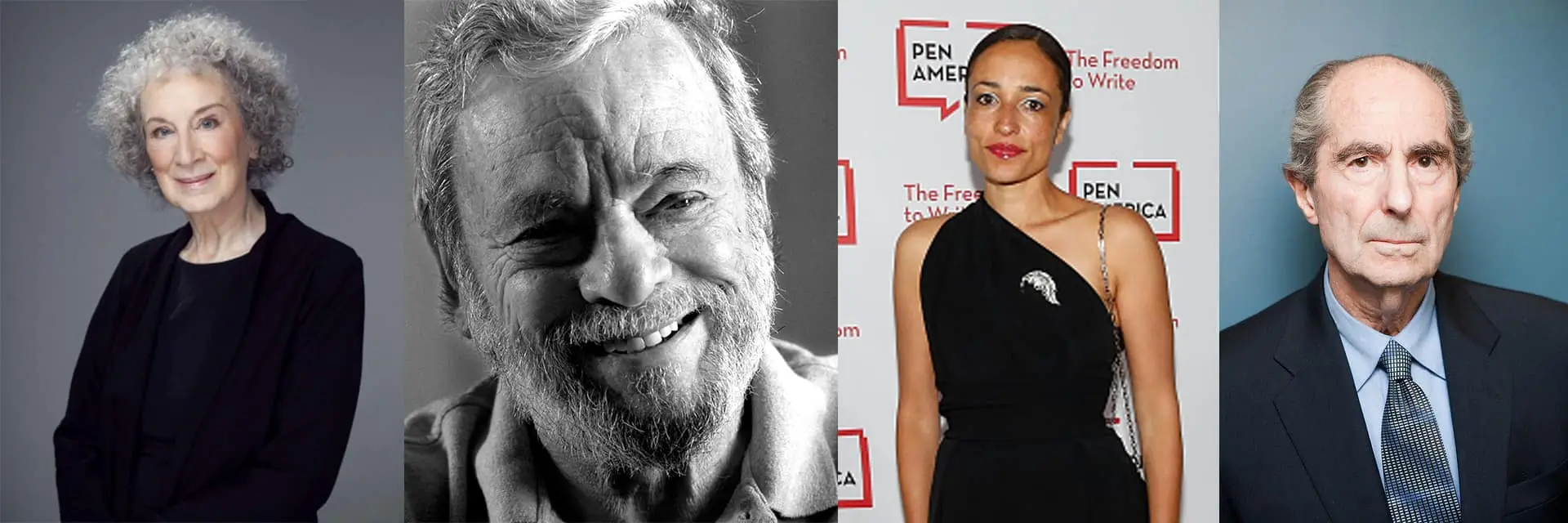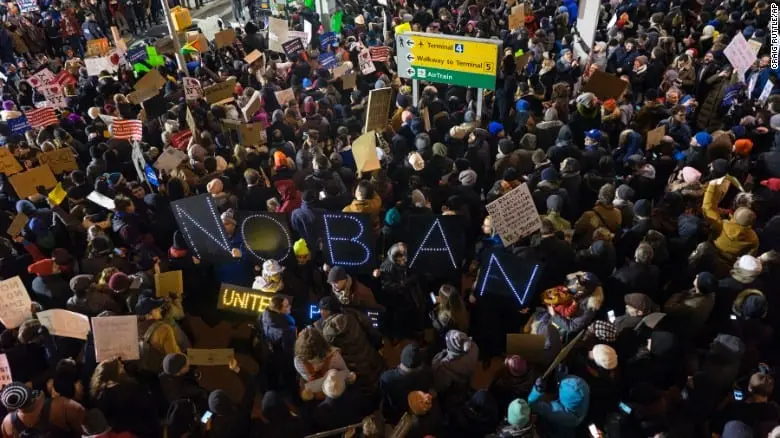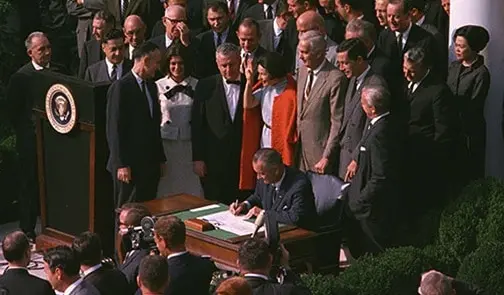Opening remarks from Daniel Alarcón , Masha Gessen, Dinaw Mengestu, Mona Eltahawy, Andrew Solomon, and moderated by Suzanne Nossel.
The role of the writer is being tested in an era of new and intensified attacks on the First Amendment, the discrediting of the press and journalists, and efforts to obscure and distort the truth. Writers have been at the vanguard of chronicling, interpreting, and helping shape responses to fast-breaking developments that have the potential to remake essential aspects of our politics and society. This Town Hall meeting will begin with brief remarks from selected writers, followed by an open mic discussion among PEN America Members. PEN America trustee election results will be announced at the conclusion of the Town Hall.
Daniel Alarcón began working as a journalist in 2004, first in print for Latin American outlets such as Etiqueta Negra, and later for American and European publications including Harper’s, the New York Times Magazine, El País, and Granta, where he was named a Contributing Editor in 2010. In 2012, he co-founded Radio Ambulante, a groundbreaking Spanish language podcast, the first of its kind covering Latin America with long-form narrative radio journalism. Alarcón graduated from Columbia University in 1999 with a BA in Anthropology; he earned an MFA in Creative Writing from the University of Iowa in 2004. In 2012-13, Alarcón joined the University of California Berkeley’s Graduate Journalism School as an Investigative Reporting Fellow.
Mona Eltahawy is a prominent feminist writer and public speaker. She is the author of Headscarves and Hymens: Why the Middle East Needs a Sexual Revolution (FSG). She became well known during 2011’s Arab Spring when she was arrested in Cairo while covering protests in Tahrir Square, accusing her captors of physical and sexual assault while she was held in custody. Eltahawy has most recently challenged US President Donald Trump and what she describes as “politically sanctioned patriarchy”. She lives in Cairo and NYC.
Dinaw Mengestu is the award-winning author of two previous novels, The Beautiful Things That Heaven Bears (2007) and How to Read the Air (2010). He is a graduate of Georgetown University and of Columbia University’s M.F.A. program in fiction and the recipient of a 5 Under 35 award from the National Book Foundation and a 20 Under 40 award from The New Yorker. His journalism and fiction have appeared in such publications as Harper’s Magazine, Granta, Rolling Stone, The New Yorker, and The Wall Street Journal. He is a recipient of a 2012 MacArthur Foundation genius grant and currently lives in New York City.
Andrew Solomon is a writer and lecturer on politics, culture, and psychology, a professor of clinical psychology at Columbia University Medical Center, and the president of PEN America. He is the author of, most recently, Far and Away: Reporting from the Brink of Change, an anthology of his international reporting, and Far From the Tree: Parents, Children, and the Search for Identity, which received the National Book Critics Circle Award for nonfiction as well as more than 25 other national awards. His previous book, The Noonday Demon: An Atlas of Depression, won the National Book Award and was a Pulitzer Prize finalist, and has been published in 24 languages. He is also the author of The Irony Tower: Soviet Artists in a Time of Glasnost, and of a novel, A Stone Boat. His writing appears frequently in The New Yorker and in The New York Times, and he is often on NPR. His TED talks have been viewed over 10 million times. Solomon is an activist in LGBT rights, mental health, education, and the arts. He is founder of the Solomon Research Fellowships in LGBT Studies at Yale University, and a member of the board of the National LGBTQ Force and Trans Youth Family Allies. Additionally, Solomon serves on the boards of the Metropolitan Museum of Art, the World Monuments Fund, Yaddo, and The Alex Fund.
Suzanne Nossel currently serves as the executive director of PEN America, leading PEN’s work on press freedom, creative freedom, the amplification of marginalized voices and fostering dialogue across divides in the United States and worldwide. Her career has spanned government service and leadership roles in the corporate and non-profit sectors. She was formerly the executive director of Amnesty International and deputy assistant secretary of state for International Organizations at the U.S. Department of State. She serves on the Board of Directors for the Tides Foundation and is a member of the Council on Foreign Relations.


